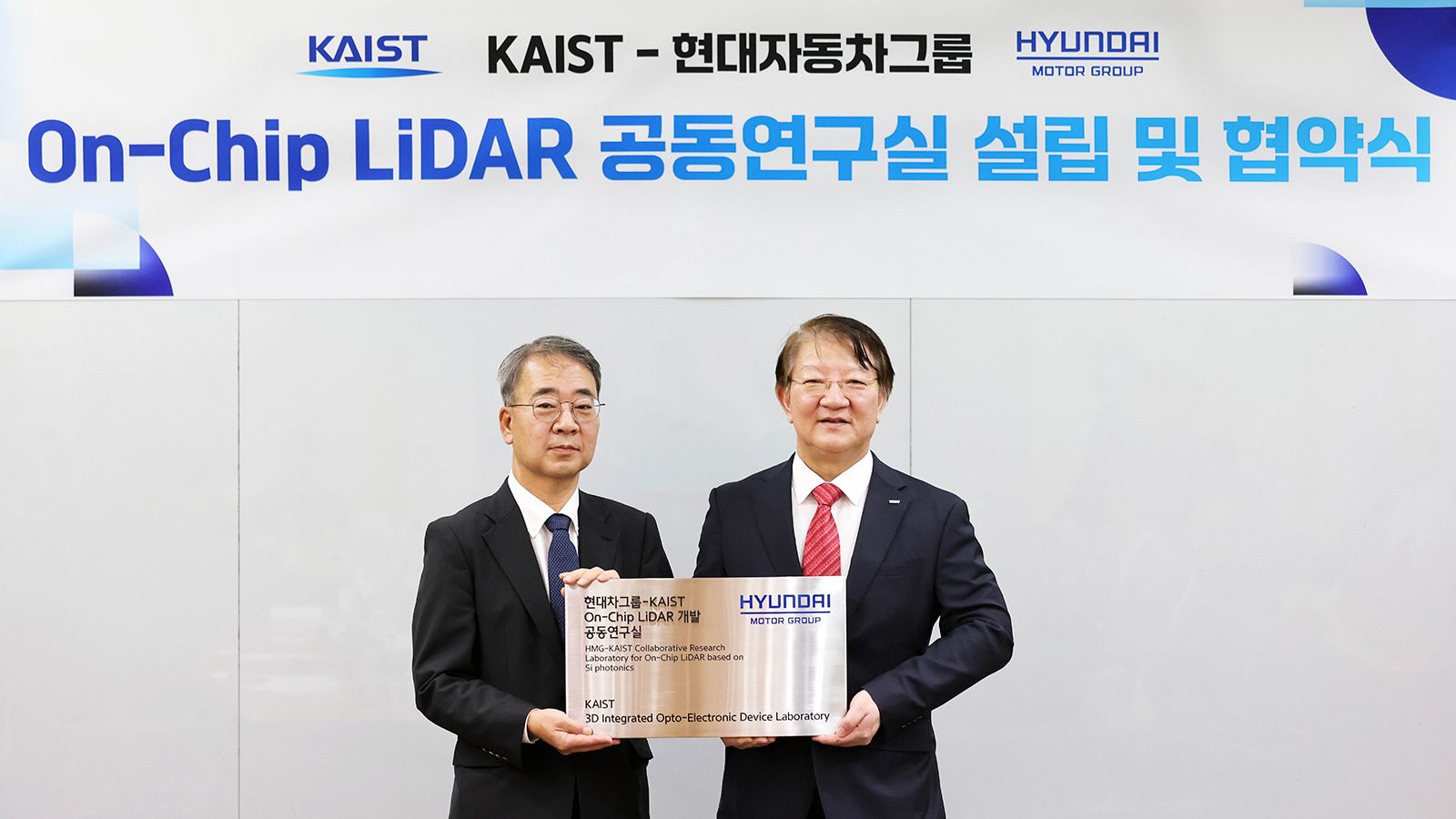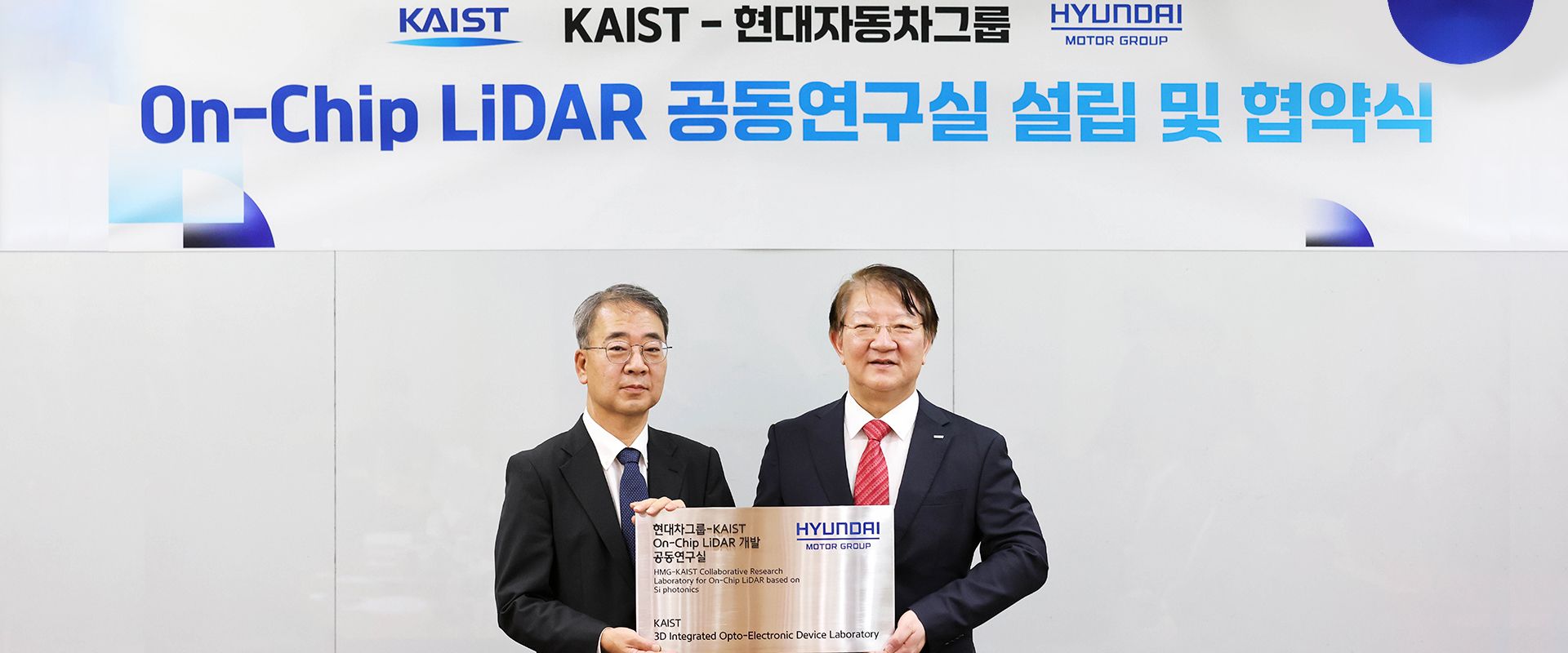Hyundai Worldwide Global Navigation
- Go to Global Distributors page
- KR
-
SearchRecommended search terms
Autonomous & SDV Hyundai Motor, Kia and KAIST Form Joint Research Laboratory to Develop Next-Generation Autonomous Driving Sensors
Please use Safari to download the files.
Hyundai Motor, Kia and KAIST Form Joint Research Laboratory to Develop Next-Generation Autonomous Driving Sensors
SEOUL, February 22, 2024 – Hyundai Motor Company and Kia Corporation today announced that they are partnering with KAIST (Korea Advanced Institute of Science and Technology), to develop next-generation autonomous driving sensors. Together, Hyundai Motor, Kia and KAIST will establish the ‘Hyundai Motor Group-KAIST On-Chip LiDAR Joint Research Lab’ at KAIST in Daejeon to develop LiDAR sensors for advanced autonomous vehicles.
The joint research lab aims to develop high-performance and compact on-chip sensors and new signal detection technology that are essential in the increasingly competitive autonomous driving market.
On-chip sensors, which utilize semiconductor manufacturing technology to add various functions, can reduce the size of LiDAR compared to conventional methods and secure price competitiveness through mass production using semiconductor fabrication processes.
In addition, the current LiDAR sensors measure the distance to objects by emitting and measuring the time it takes for light to return. However, the next-generation signal detection method, called Frequency Modulated Continuous Wave (FMCW), emits light with a frequency that varies over time and analyzes the frequency shift of the returning light to detect distance.
Compared to existing methods, this technology has less signal noise, can calculate relative speed with objects, and can exclude interference from external light sources such as sunlight, making it relatively advantageous in severe weather conditions.
The joint research lab will consist of about 30 researchers, including the Hyundai-Kia Institute of Advanced Technology Development research team and KAIST professors Sang-Hyeon Kim, Sangsik Kim, Wanyeong Jung and Hamza Kurt from KAIST’s School of Electrical Engineering, and will be in operation for four years until 2028.
KAIST will be leading the specialized work of each research team, such as the development of silicon optoelectronic on-chip LiDAR components, fabrication of high-speed, high-power integrated circuits to run the LiDAR systems, and the optimization and verification of LiDAR systems.
Hyundai Motor and Kia, together with Hyundai NGV, a specialized industry-academia cooperation institution, will oversee the operation of the joint research lab and provide support, such as monitoring technological trends, suggesting research directions, deriving core ideas and recommending technologies and experts to enhance research capabilities.
Disclaimer: Hyundai Motor Group believes the information contained herein to be accurate at the time of release. However, the company may upload new or updated information if required and assumes that it is not liable for the accuracy of any information interpreted and used by the reader.
About Hyundai Motor Group
Hyundai Motor Group is a global enterprise that has created a value chain based on mobility, steel and construction, as well as logistics, finance, IT and service. With about 250,000 employees worldwide, the Group’s mobility brands include Hyundai, Kia and Genesis. Armed with creative thinking, cooperative communication and the will to take on any challenges, we strive to create a better future for all.
More information about Hyundai Motor and its products can be found at:
http://www.hyundaimotorgroup.com or Newsroom: Media Hub by Hyundai , Kia Global Media Center (kianewscenter.com) , Genesis Newsroom


